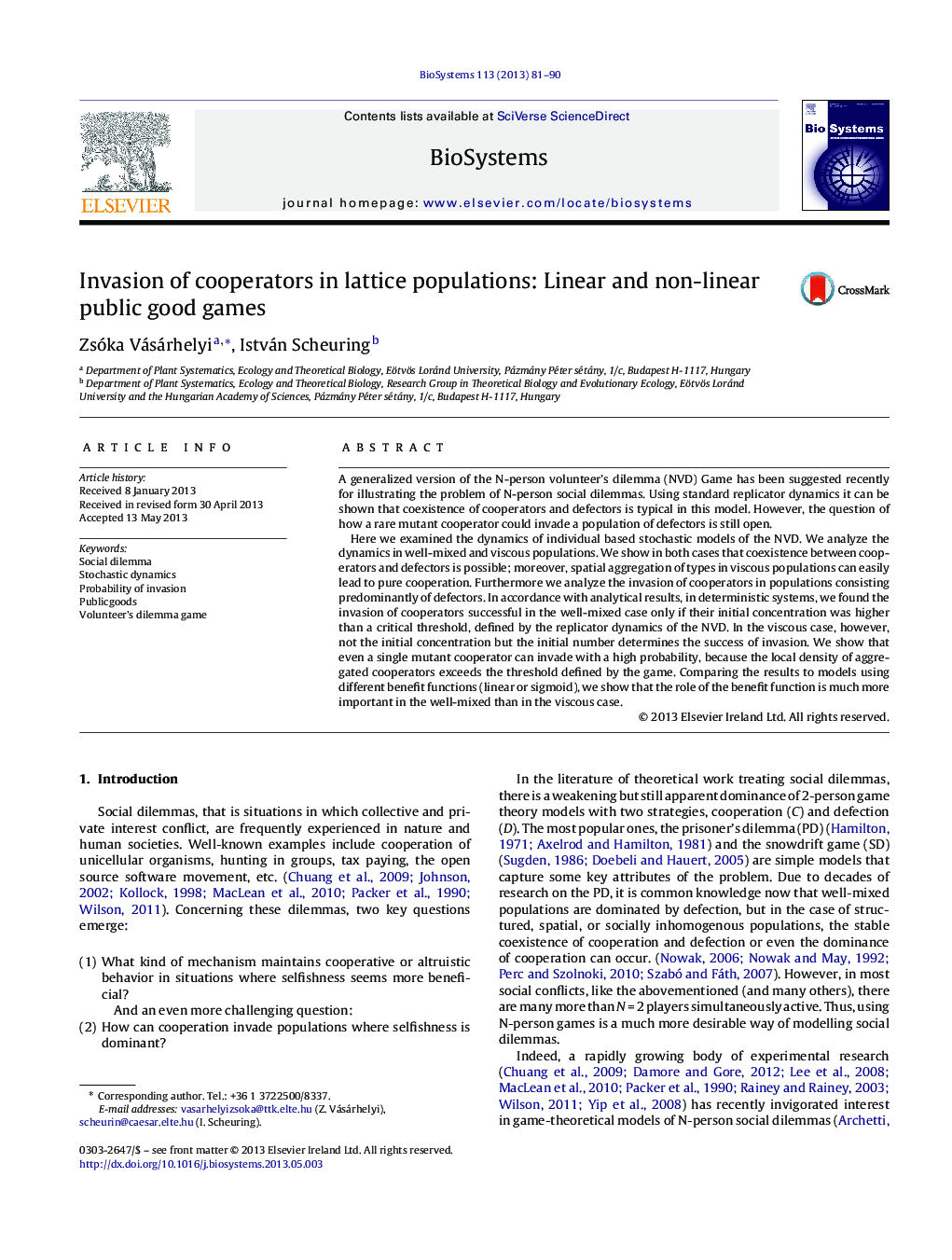| Article ID | Journal | Published Year | Pages | File Type |
|---|---|---|---|---|
| 10884561 | Biosystems | 2013 | 10 Pages |
Abstract
Here we examined the dynamics of individual based stochastic models of the NVD. We analyze the dynamics in well-mixed and viscous populations. We show in both cases that coexistence between cooperators and defectors is possible; moreover, spatial aggregation of types in viscous populations can easily lead to pure cooperation. Furthermore we analyze the invasion of cooperators in populations consisting predominantly of defectors. In accordance with analytical results, in deterministic systems, we found the invasion of cooperators successful in the well-mixed case only if their initial concentration was higher than a critical threshold, defined by the replicator dynamics of the NVD. In the viscous case, however, not the initial concentration but the initial number determines the success of invasion. We show that even a single mutant cooperator can invade with a high probability, because the local density of aggregated cooperators exceeds the threshold defined by the game. Comparing the results to models using different benefit functions (linear or sigmoid), we show that the role of the benefit function is much more important in the well-mixed than in the viscous case.
Keywords
Related Topics
Physical Sciences and Engineering
Mathematics
Modelling and Simulation
Authors
Zsóka Vásárhelyi, István Scheuring,
